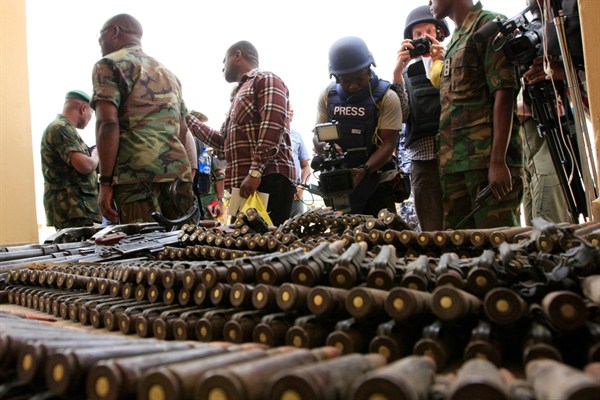Crises and upheaval in the Sahel and West Africa have altered the regional security terrain. Challenges that were once disparate and manageable are increasingly becoming intertwined and more pronounced. With the growing mobility of conflicts, the need for a more cooperative regional context has never been as pressing. Each country in the region has a stake in improving stability, and collectively they have the capacity to tackle the threats to peace and security—but first, they each must overcome a host of domestic obstacles.
The influence of four countries in particular—Morocco, Algeria, Chad and Nigeria—is a central fact of geopolitics in West Africa and the Sahel. For good or ill, their domestic structures, power capabilities, threat perceptions and strategic outlooks illustrate the potentials and pitfalls of their roles in boosting regional security and cooperation. When they fall into hard times—political stasis, economic turmoil or internal violence—their neighbors bear the brunt of their difficulties.
Nigeria and Algeria are examples of regional powers that perform well below their potential; Chad, by contrast, is a single-dimensional military power that punches well above its weight. Despite significant governance and developmental deficits, Chad has emerged as a critical player in the fight against violent extremism. And of the four powers, Morocco has demonstrated the centrality of soft power as a complement to hard power—in strengthening both counterterrorism measures and regional cohesion more broadly.

